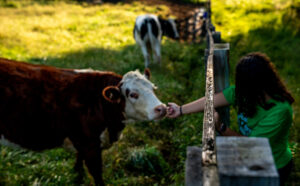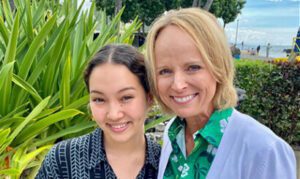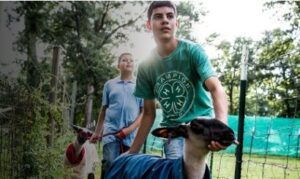Dr. Carolyn Williams
, Extension Director at the Prairie View A&M University, celebrates 4‑H and Extension agents, noting, “I am so proud of how they transitioned into virtual educators while learning to use technology in the process.”Dr. Maurice Smith
embarked on a professional transition, leaving his role as Assistant Professor and 4‑H Youth Development Extension Specialist at Virginia State University to become a National Program Leader at the USDA-NIFA.Here’s how Teki Hunt, Director of 4‑H Youth Development Programs at the University of Arkansas Pine Bluff (UAPB), is working with community groups to deliver 4‑H resources and bring awareness to racial equity.
Since March 2020, we’ve primarily shifted to virtual platforms. I started a UAPB 4‑H Facebook page so I could continue doing live Healthy Living Sessions, as well as share 4‑H at Home activities and ideas from other 4‑H programs. We did a grab-and-go Healthy Snack bag from 4‑H and the Expanded Food and Nutrition Education Program (EFNEP), which included instructions for a recipe contest we ran. Some of our afterschool groups are following a blended model—some in-person meetings with 10 kids or less, others online via Zoom.
In June 2020, our community held a Pine Bluff Solidarity Rally. My son—who has participated in 4‑H since about 3rd grade—was one of the speakers. Since then, we recently distributed a survey regarding our community and police relations as well as feelings of safety here in Pine Bluff. I developed the Spanish translation. This is completely voluntary and not connected to the university. University-related—in partnership with the University of Arkansas—we are working on the development of a Coming Together for Racial Understanding training.
**The Morrill Act of 1890 requires each state to show that race was not an admissions criterion, or else to designate a separate land-grant institution for persons of color. Among the seventy colleges and universities which eventually evolved from the Morrill Acts are several of today’s historically black colleges and universities (HBCUs).

Nationwide, the Nationwide N and Eagle and Nationwide is on your side are service marks of Nationwide Mutual Insurance Company. © 2021 Nationwide
















